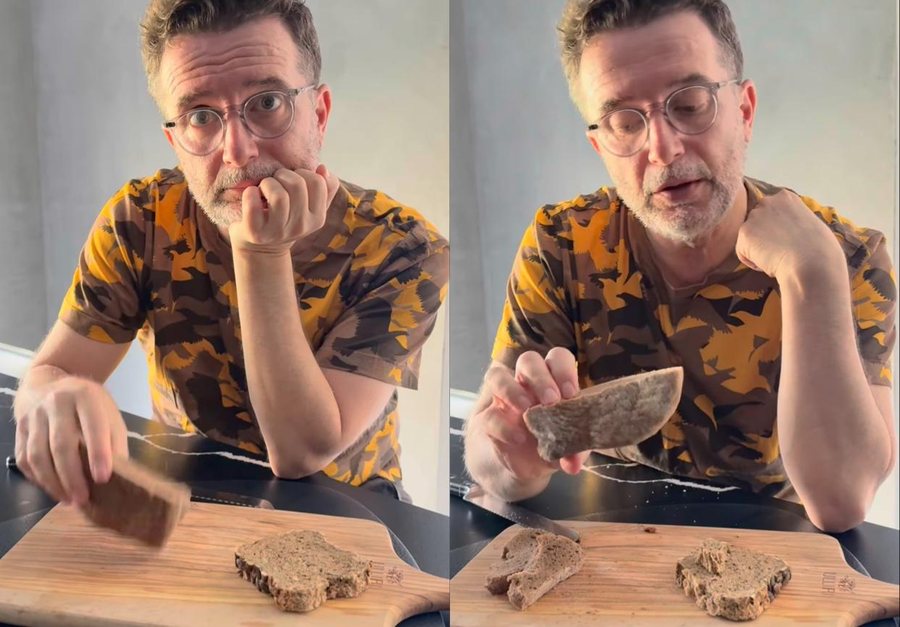
In a video recently published on his Instagram profile, MP Erion Braçe shared a concern that, for many people, is a reality: bread bought in the store becomes hard as a rock after just two days.
"What do they do with this bread that on the second day is either straw or wood?!" Braçe writes in his post.
View this post on Instagram
He further ironizes:
"I believe that all this army of tax collectors who have come out to provide us with food will have an answer. They've been fighting for safe food for two weeks, haven't they?!"
His video also received comments from citizens who shared the same concern:



Among the comments, there was also the reaction of Dhurata Thanasi, a well-known activist for healthy eating and administrator of the @lugaeargjente profile on Instagram.
In her comment, Thanasi explained:
"'Killing you with bread in your mouth' – that's the right expression. It's called infidelity, Mr. Braçe! Many industrial 'whole wheat' breads are made with white flour, to which bran is added, often a cheap waste product."
She explained that this process, called "reconstitution" or "reconstruction," is used by the industry to reduce costs and increase shelf life, at the expense of the nutritional value of the bread.
"Today, the industry that brings flour to our supermarkets and bakeries uses modern soft wheat grains (Triticum aestivum), selected for high yield and gluten strength, not for nutritional content or taste," Thanasi writes.
Thanasi, one of the strongest voices in Albania for family nutrition education, also points the finger at the consumer culture that, according to her, our society has become complicit in, because we choose products that last longer on the shelf, but that offer less on the plate.
She makes a simple but significant parallel:
"I make bread with flour from indigenous wheat, without industrial processing, and it will last 3-4 days before it gets moldy because it is a living product, with enzymes, natural moisture and nutritional value. While bread that does not get moldy, but only becomes stone-like, is often filled with: ethyl alcohol, sorbic acid, calcium propionate, or enzymes that inhibit mold."
At the end of her comment, with irony and disappointment, she adds:
"Yes, I have some solutions, they are long but sustainable! But no one is hanging on me and hanging on us!"





